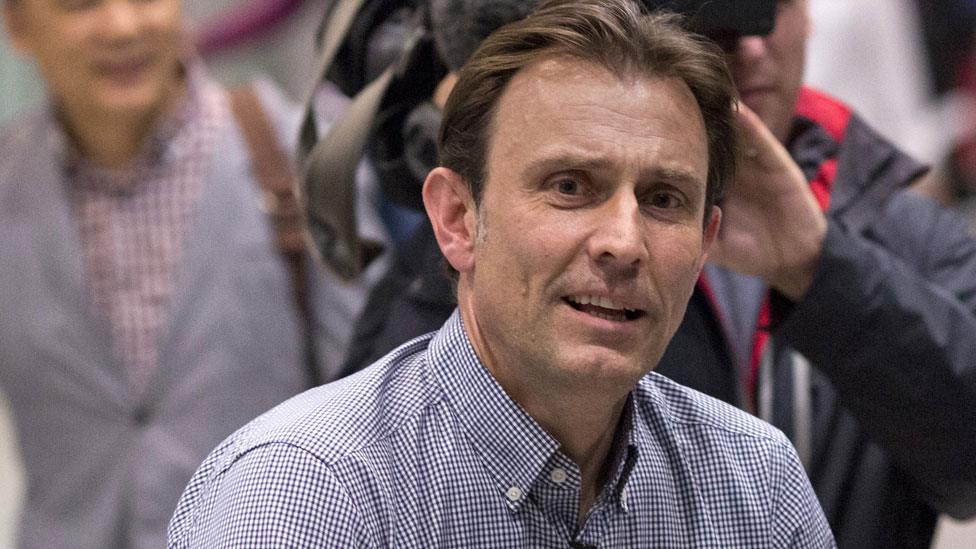Remembering North Korea's Christian martyrs
- Published
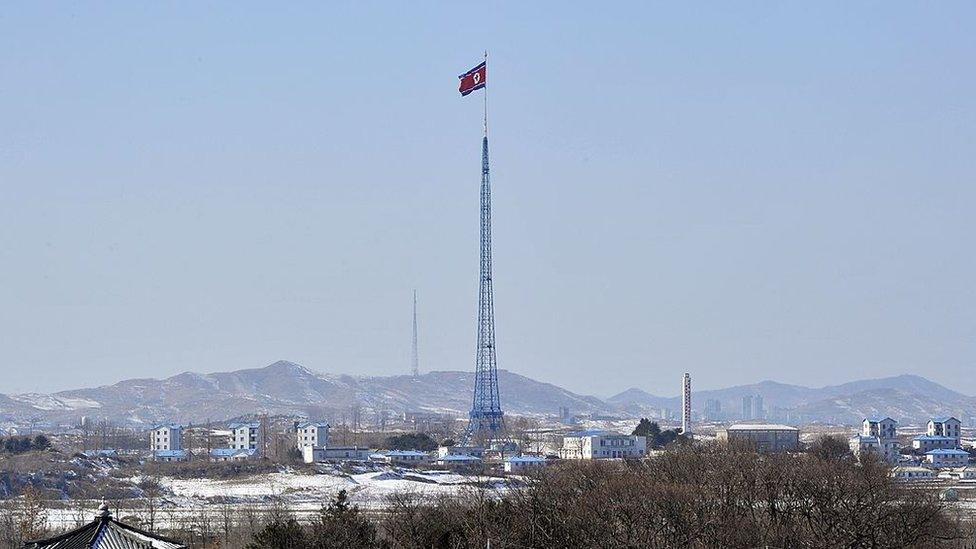
Christmas is a time of great celebration for the world's two billion or so Christians. In one part of the planet, though, the lights are out. There is not be a flicker of recognition of the festival in North Korea - or not in public. It may be celebrated secretly, particularly as 2016 is the anniversary of a great Christian martyrdom on the banks of the Taedong river in Pyongyang.
Nobody knows how many North Koreans celebrate the birth of Christ just over two millennia ago. For them, displays of faith can lead to prison or worse.
And nobody knows either who will remember the death 150 years ago of a missionary on the banks of the Taedong river.
The Welshman, Robert Jermain Thomas, was one of the big figures who brought Christianity to the Korean peninsula. Befitting his contribution, his death, around the end of August in 1866, has been marked with loud and joyous celebrations in churches in Cardiff and Seoul.
But from Pyongyang, where Thomas was martyred, there has not even been a peep of the smallest trumpet.
The exact circumstances of his death are unclear but it is known that he was a missionary who became fascinated by Korea. At a time when Western influence was feared and rejected, he voyaged on an American ship to spread his faith. There was an altercation and fierce fighting broke out between the crew and the Koreans ashore.
In one version of the story, Thomas abandoned the burning ship and was captured by hostile troops on shore. He is said to have kneeled and given his executioner a Bible before being killed.
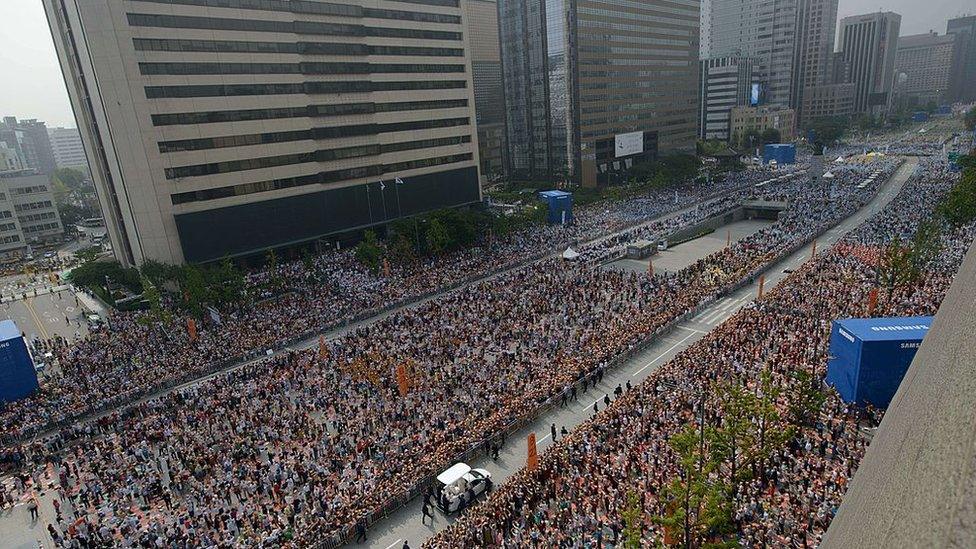
Thousands of South Koreans welcomed Pope Francis to Seoul in August 2014
That legend resonates loudly 150 years later in South Korea, where Christianity thrives, and in my native Wales, where Korean missionaries now work in a reversal of the old role - once Welsh missionaries tried to convert the "savages" in exotic lands; now missionaries from prosperous countries like South Korea settle in Wales to spread the faith that once was strong.
South Koreans think Thomas, and his example, were very influential in spreading Christianity. Gi Jung Song, the Korean pastor of the International Church in Cardiff, told the BBC: "Korea was in darkness spiritually and this young man from Wales brought the Bible.
"He was killed soon after his arrival but his death influenced the whole of Korea. The person who killed him became a Christian and his house became a church."
The influence grew after Thomas's death. Pyongyang became a strong Christian centre with a hundred churches only fifteen years later. As the century turned, Korea started looking to Wales for inspiration, so the Welsh Religious Revival of 1904 was echoed by a revival of Christian belief in Korea in 1907.
These days, some devout Christians do visit North Korea but they do so understanding that they keep their Christianity to themselves. Doctors from Wales, for example, are helping to set up a medical school in Pyongyang, but they have been invited for their expertise and they leave their Bibles at home - those who didn't in the past were arrested and imprisoned.
One Christian who frequently visited the country told the BBC that, when he goes to Pyongyang, he unobtrusively tries to look for the last resting place of Robert Jermain Thomas: "I've had no success finding the actual grave but on the island (in the centre of Pyongyang where the death is thought to have happened), there is only one area where the boat could've run ashore and there are very old trees there."
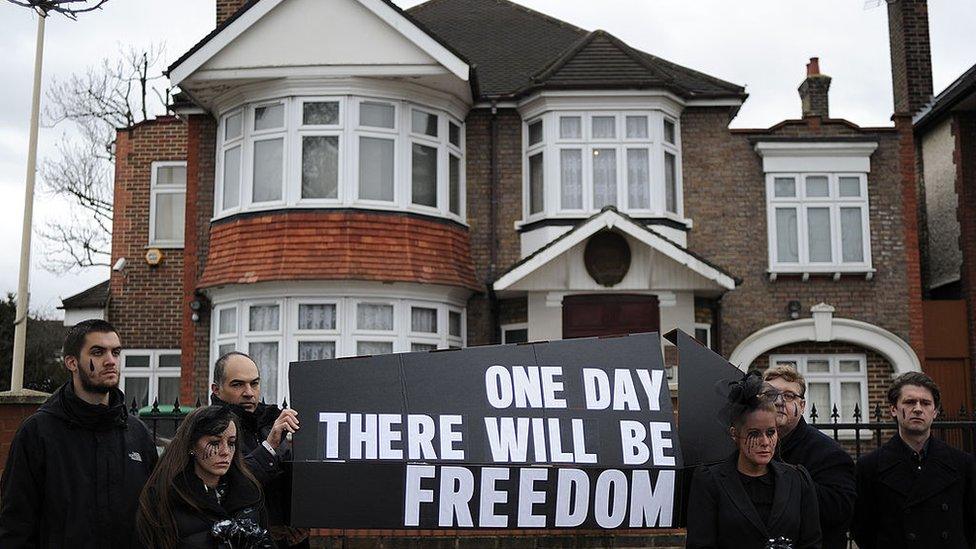
Members of the Christian rights group Release International protested outside the North Korean embassy in west London in 2012
These trees, he said, have been preserved partly because they were the site of a meeting between Kim Il-sung, the ruthless founding dictator of North Korea, and Syngman Rhee, the ruthless founding dictator of South Korea.
But might they also have a significance as the site of the martyrdom of Thomas, a significance unacknowledged by the regime but quietly known in hidden Christian enclaves?
One Korean in Wales, Jacob Park, said he had met North Korean defectors who said they had known of the death of Thomas but not of his significance: "Defectors knew about Robert Jermain Thomas before they left but they were told he was a thief and an imperialist. When they learned the truth, they accepted him as a hero."
Christians, like any citizens in North Korea, find it hard to get information they can trust. There are four churches in Pyongyang but it's hard to know whether they offer genuine worship. Visiting sympathisers with the regime tend to say that the worshippers can't all be actors bussed in for the tourists, while Christian groups say they are nothing but facades.
As with so much information about North Korea, a lot is incredible (though, like the Soviet Union, what seemed like the incredible stories of famine and mass execution in the 1930s turned out to be true).
So it's hard to know what credit to give to reports in the Western Christian media of unverifiable horrors like the execution by steam-roller of Christians or that they have been crucified over flames.
In September 2016, the Christian activist group, Christian Solidarity Worldwide, published a report which said: "Among other basic human rights denied to the people of North Korea, freedom of religion or belief is largely non-existent. Denial of this right has occurred since the 1950s, and the current leader, Kim Jong-un, continues to violate citizens' religious freedom."
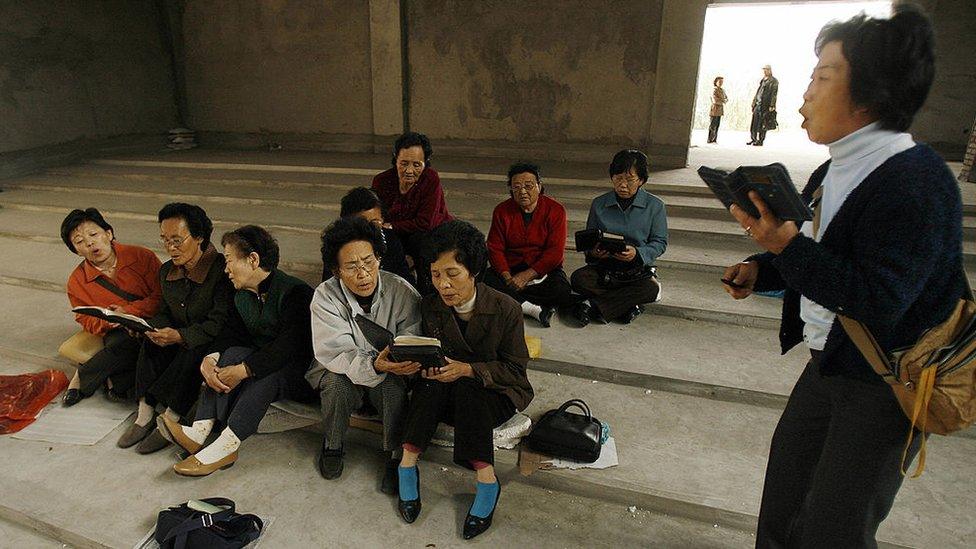
Ethnic Korean Christians sing hymns in Yanji on the China/North Korea border
The Christian group said that the regime claims there are about 500 unofficial churches in North Korea where people worship privately at home. The group is sceptical.
What is indisputable is that those who try to take Christianity into North Korea find themselves behind bars doing hard labour, sometimes after being threatened with execution.
In December 2015, a Toronto pastor, Hyeon Soo Lim, was detained in North Korea for what the authorities said was an attempt to overthrow the government.
Canadian officials went to North Korea in December 2016 to plead for his release. A Canadian diplomat said afterwards: "The government of Canada is very concerned about the health, well-being and continued detention of Mr. Lim".
He is not the only recent victim of North Korea's persecution of Christians.
In the spring of this year, a priest working in China to help defectors from North Korea was found murdered after having been beaten and attacked with an axe.
Christian activist groups strongly suspect North Korean agents operating on the Chinese side of the border.
"Han Choong Yeol was active in helping North Korean refugees by giving them food, medicine, clothing and other goods they needed for survival back in North Korea", said Open Doors, an organisation which helps persecuted Christians around the world.
The Welshman Robert Jermain Thomas was not the last Christian martyr in Korea.
- Published11 September 2023
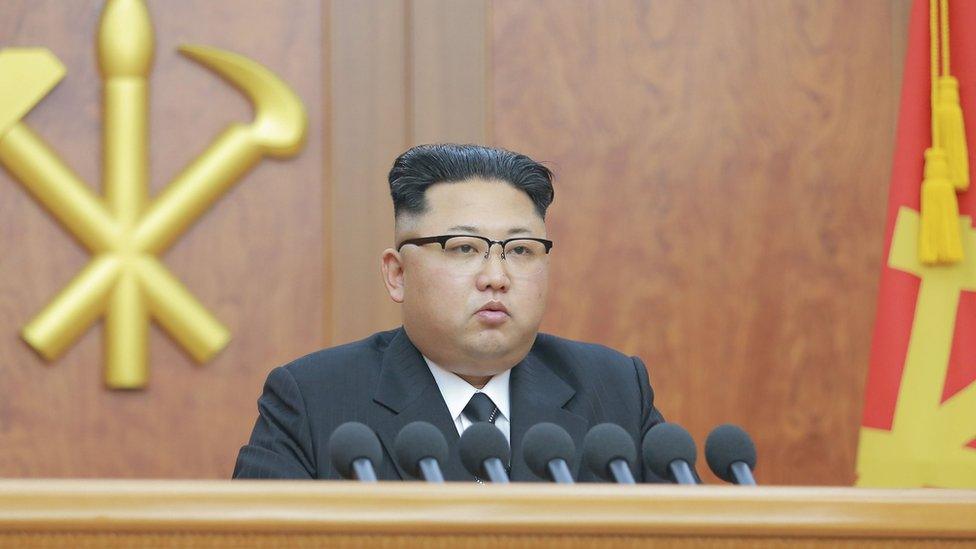
- Published19 December 2016

- Published20 May 2016
